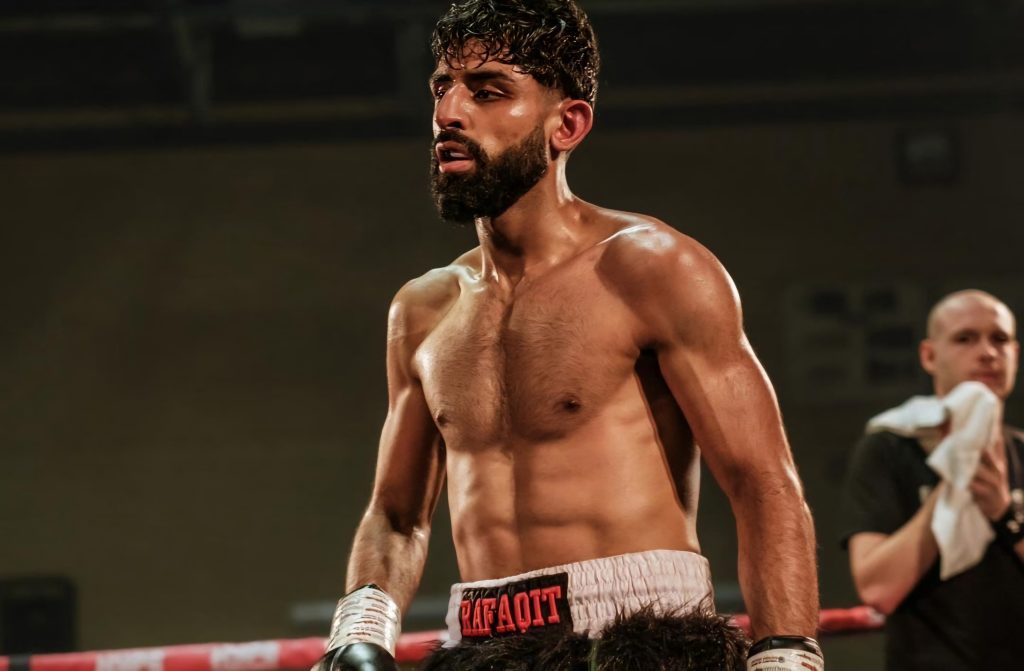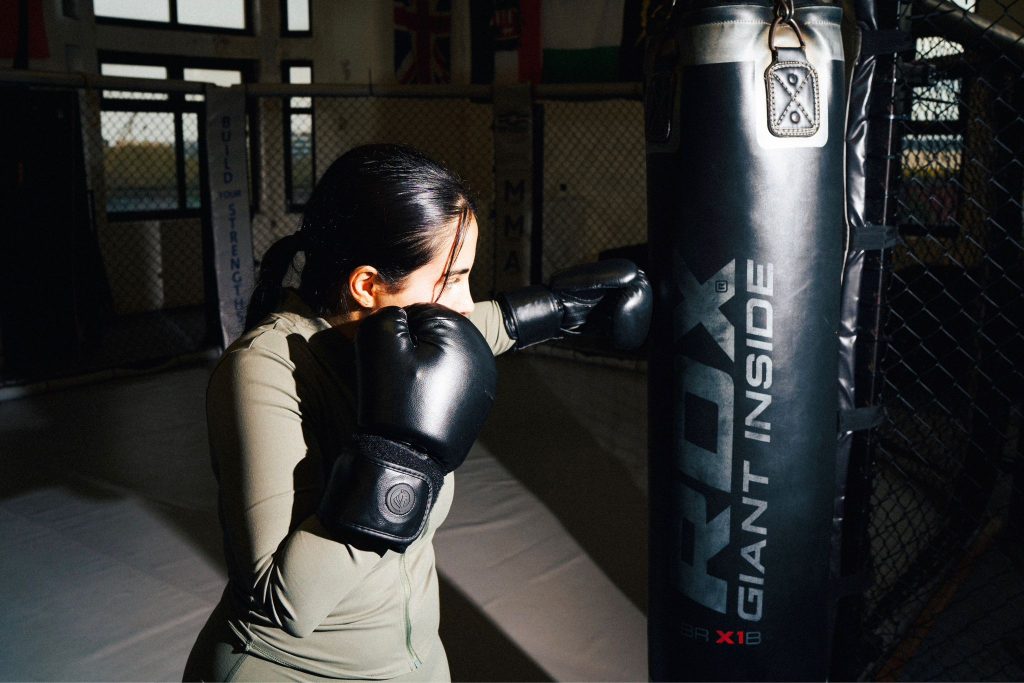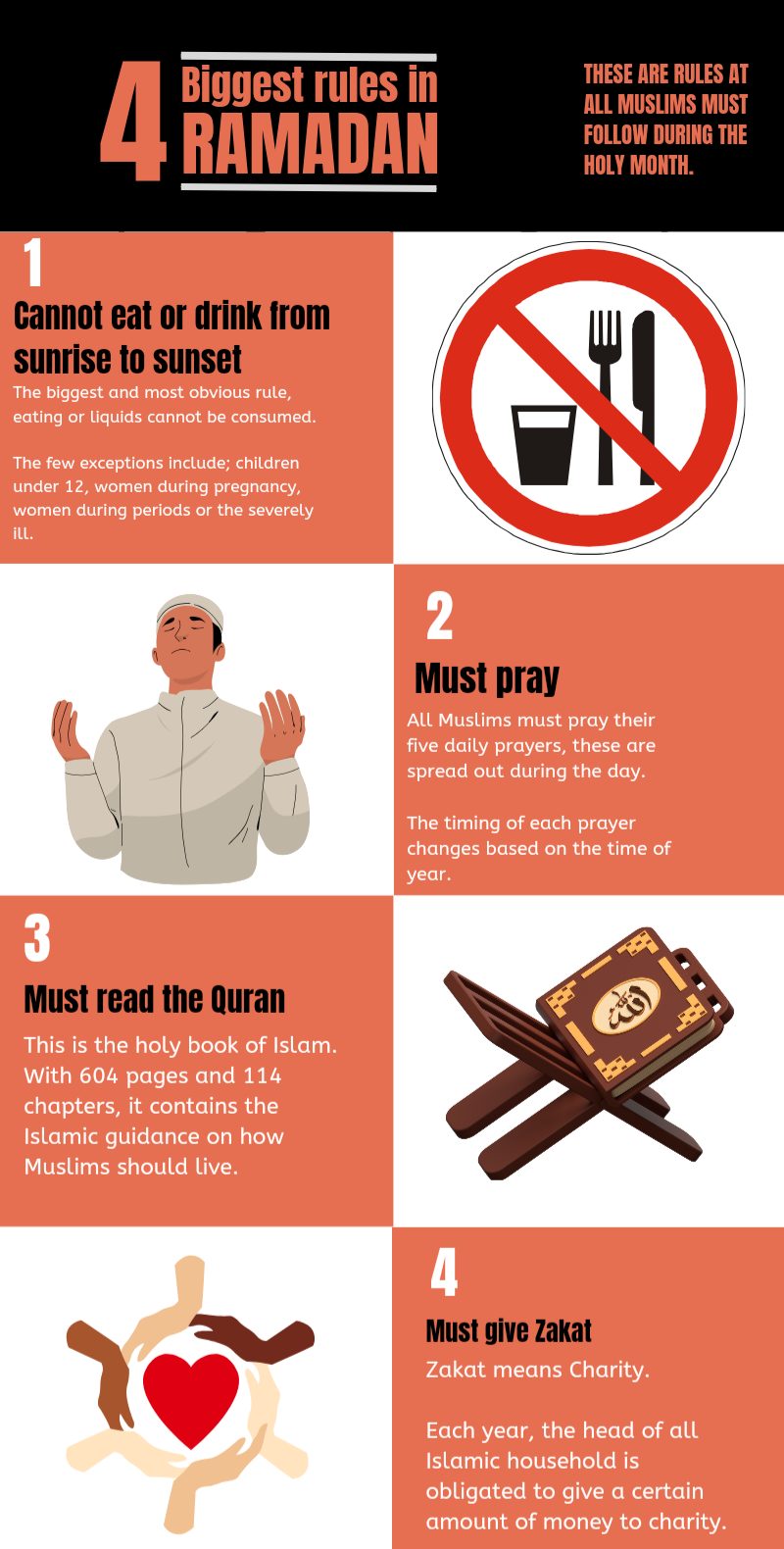A dangerous yet glorious tradition, boxers and mixed martial-arts fighters are regarded as modern day gladiators. The level of dedication required to even train for it is second to none.
But imagine doing it on an empty stomach.
Since 624 CE, when Prophet Muhammed (PBUH) experienced a revelation from God (Allah), the first ever Ramadan took place in Medina, modern-day Saudi Arabia. Muslims are not allowed to eat or drink from sunrise to sunset for 30 days straight in Ramadan.
However, boxer Amar Kayani is someone who takes fasting within his stride and welcomes the challenge during Ramadan.
He said: “It’s a struggle but after a week, your body gets used to it.
“I actually run further in Ramadan, normally I would run a 5k or 10k, but in Ramadan I run further, I run 10 miles.”

A full-time boxer and coach, who has a record of 9-1, Kayani goes above and beyond during the holy month.
“I always think, if I can train hard when I’m dehydrated, when I have actually got the nutrients in me, it’s so much easier,” he said.
“The only thing I’m not doing is sparring, because one thing that breaks the fast is bleeding, and when I spar, I’m prone to bloody noses.
“I’ll even weightlift, some people don’t lift weights because they don’t have the energy.
“I think the people that say they can’t train because they’re fasting, they’re weak people, weak individuals.”
Kayani is certainly not alone.
Former champion Amir Khan is one of the most popular British Pakistani Muslim boxers to come from England, and once revealed he had to train at night during fasting. He usually ate raw vegetables, rice and scrambled eggs before sunrise.
Shahad Sultan, 22, has been training in boxing and MMA for seven months, and is now learning Brazilian Jiu-Jitsu as well.

She said: “Training on an empty stomach while fasting, is both a mental and physical challenge.
“Physically, the body feels weaker due to the lack of energy from food intake. As I abstain from eating or drinking from dawn until sunset, this leads to decreased stamina and endurance.
“My body adapted to fasting over time. As I continued to train while fasting, my body became more efficient at using stored energy, and the mental resilience grew stronger. It’s a process of self-improvement on both physical and spiritual levels.”
She began training after gaining inspiration from her older brother who competes in wrestling, and is yet to have her first official Jiu Jitsu bout.
She said: “When I go to the gym, it’s typically people that aren’t fasting that I am around.
“Usually on the days that I am feeling extra dehydrated or hungry, me and my coach would train together on the side, they would push me but be respectful of the fact that I am fasting.”
Sultan was born in Iraq and is currently studying for a masters degree in accounting and finance at the University of Manchester.
She has viewed this Ramadan experience as a spiritual journey.
“With the essence of Ramadan being about discipline and sabr (patience) which is mentioned in the Quran, you also need to adopt the same mindset for training,” she said.
Before Ramadan, Sultan trained for five days a week. However during Ramadan, she trained for three days a week at Franks Gym in Manchester.
She explained: “Discipline helped me push through fatigue and discomfort.”
In Islam, eating at sunrise is called Suhoor or Sehri, this is the last chance that Muslims have to eat before their fast begins.
Their fast that ends at sundown is called Iftar. For Muslims in the UK, this happened around 7:30pm.
Sultan said: “I typically train from 6pm till 9pm, and between Iftar and Suhoor, I had coconut water which was good for hydration and electrolytes. For food, I had some complex carbs, which was helpful for burning calories and long-lasting energy.”
During Ramadan, Muslims are permitted to complete their five daily prayers and cut all habits that are considered Haram (forbidden) like listening to music.

The Islamic intention behind the holy Month is to detox the soul, to be closer to God (Allah), and to acknowledge the suffering of the poor. Muslims are permitted to start fasting once they reach the age of puberty.
Nick Wall, who is an AFN-registered nutritionist, runs his own company called Nick Wall Nutrition.

He said: “Training at a high volume while hungry and dehydrated can lead to muscle breakdown, so you would be fatigued, your food stores have gone, so it starts to eat into your muscle which can catabolize.
“And with no hydration mixed in, this can cause an increased risk of cramping and loss of concentration.
“If there are any type of scientific benefits that come from fasting, they will not trump eating around certain exercise at all.
“Protein will help you repair your muscle tissue, carbohydrates will replenish your glycogen stores.”
Wall has been a nutritionist for eight years and has clients from over 50 countries. He provides one-to-one services, zoom calls and phone calls.
He explained: “Depending on where we are leading up to a fight, anywhere between one to four grams of carbohydrates per kilogram of body-weight up to three hours before.
“For example, if a fighter weighs 50 kilograms, they would have to eat anywhere between 50 grams to 200 grams of carbs in a few hours before they fight.”
Feature image: Amar Kayani. Picture courtesy of BoxingTunes




